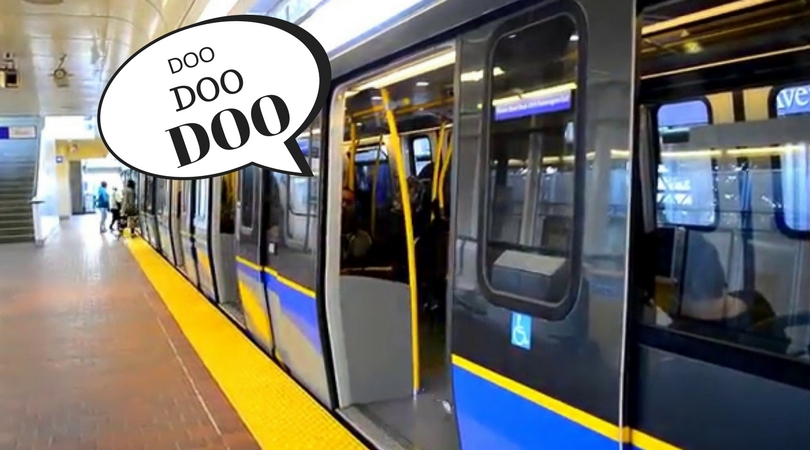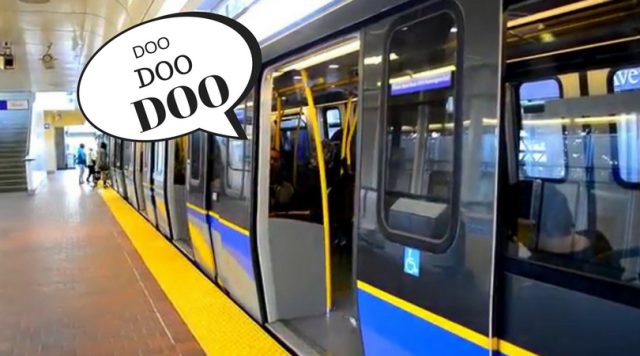Once upon a chime
Once upon a chime


Have you ever wondered where the iconic SkyTrain chime came from? Well, today is your lucky day because we’ve got an answer for you!
Once upon a chime…
Our story dates back to 1984, a few years before SkyTrain was operational. As a driverless automated system with no train operator on-board to remind passengers that doors were about to close and the train was ready to depart, we realized the need for some kind of automated on-board message.
FYI: SkyTrain opened in January 1986, on schedule and on budget ($854 million) with an initial 21.4 kms (13.3 miles) of guideway, 15 stations and 114 SkyTrain cars!
Once the decision was made to create an automated message, the next step was to determine what the message would sound like. We tested out many different ideas and even experimented with real bells, but nothing seemed to sound just right. Since SkyTrain is an automated, high-tech system, the feeling was that a reasonably conventional sounding chime was needed.
Fun fact! The SkyTrain chime isn’t just for SkyTrain! The same chime can also be heard on-board our buses!
We decided to test out some different versions of the chime using a digital synthesizer at Little Mountain Sound Studio. It took some time to come up with a tone that would be usable and would catch people’s attention. After many trials and errors, we decided that the chime would have three tones going up and would serve it’s purpose to draw passengers attention to the train departing and the doors closing.
Did you know that the SkyTrain chime was recorded in the same studio that AC/DC, Bryan Adams, Aerosmith and many other talented musicians recorded in?!
Listen to the SkyTrain chime
This post originally appeared as a podcast on The Buzzer Blog on December 1, 2008.
Author: Christina Jakopin






Enjoyed !
omg!!! this is awesome!!
Will the SkyTrain door chime can be downloaded as a ringtone through iTunes?
Hey, you made a typo on the fun fact: it’s not SkyTran, it’s SkyTrain!